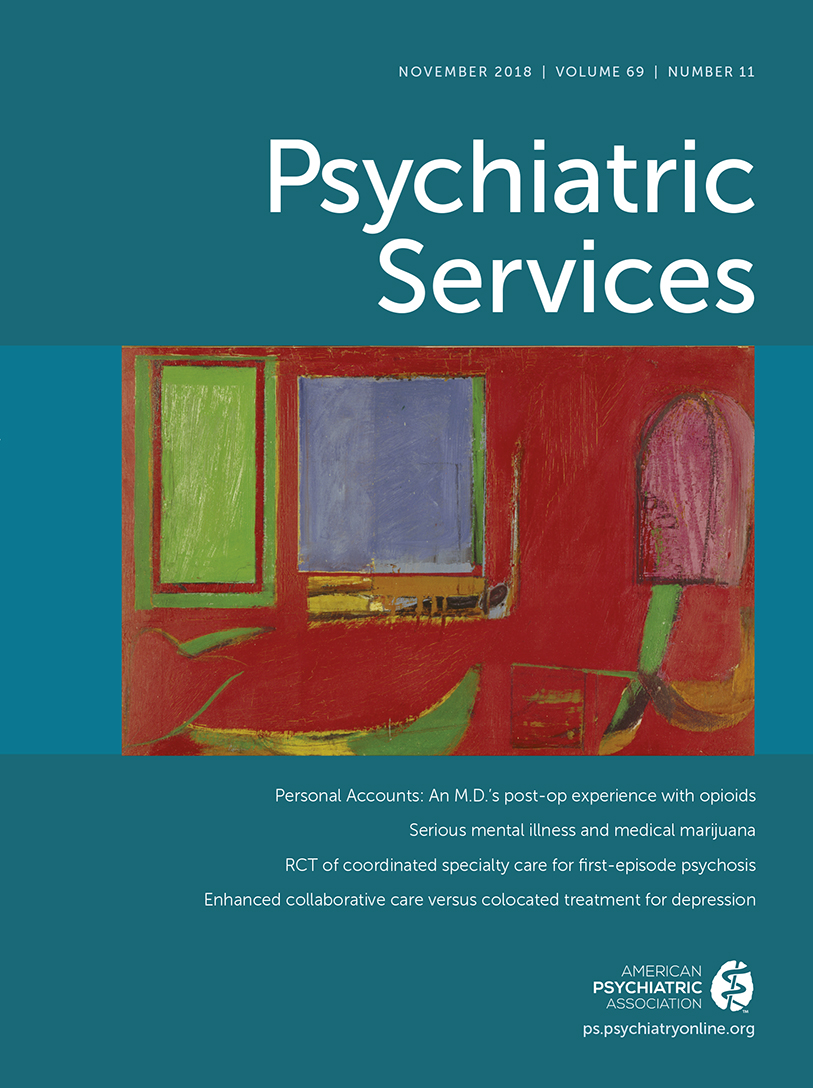Racial-Ethnic Disparities in First-Episode Psychosis Treatment Outcomes From the RAISE-ETP Study
Abstract
Objective:
This study examined racial and ethnic differences in treatment outcomes among participants in a randomized controlled trial of an intervention for first-episode psychosis called NAVIGATE.
Methods:
Secondary data analyses were conducted for participants randomly assigned to usual community care (N=181) and NAVIGATE (N=223). Generalized estimating equations assessed whether race and ethnicity were associated with psychiatric symptoms and service use (medication management, family psychoeducation, and individual therapy) over a 24-month treatment period, accounting for baseline symptoms, duration of untreated psychosis, and insurance status.
Results:
Among persons in usual community care, non-Hispanic blacks scored significantly higher throughout treatment on measures of positive symptoms (β=2.15, p=.010), disorganized thoughts (β=1.15, p=.033), and uncontrolled hostility (β=.74, p=.027), compared with non-Hispanic whites, and non-Hispanic blacks were less likely than non-Hispanic whites to receive individual therapy (OR=.45, p=.001). Families of Hispanic participants in usual community care were less likely than non-Hispanic white families to receive family psychoeducation (OR=.20, p=.01). For NAVIGATE participants, race and ethnicity were not associated with differences in psychiatric symptoms over time; families of non-Hispanic black participants were less likely than those of non-Hispanic white participants to receive family psychoeducation (OR=.53, p=.009). Hispanic participants in NAVIGATE were more likely than non-Hispanic white participants to receive medication management (OR=2.93, p=.001).
Conclusions:
In usual community care, non-Hispanic blacks scored higher on measures of psychiatric symptoms and were less likely to receive important services, compared with non-Hispanic whites. In NAVIGATE, racial and ethnic differences in psychiatric symptoms were not evident, although non-Hispanic blacks were less likely than non-Hispanic whites to receive family psychoeducation.




